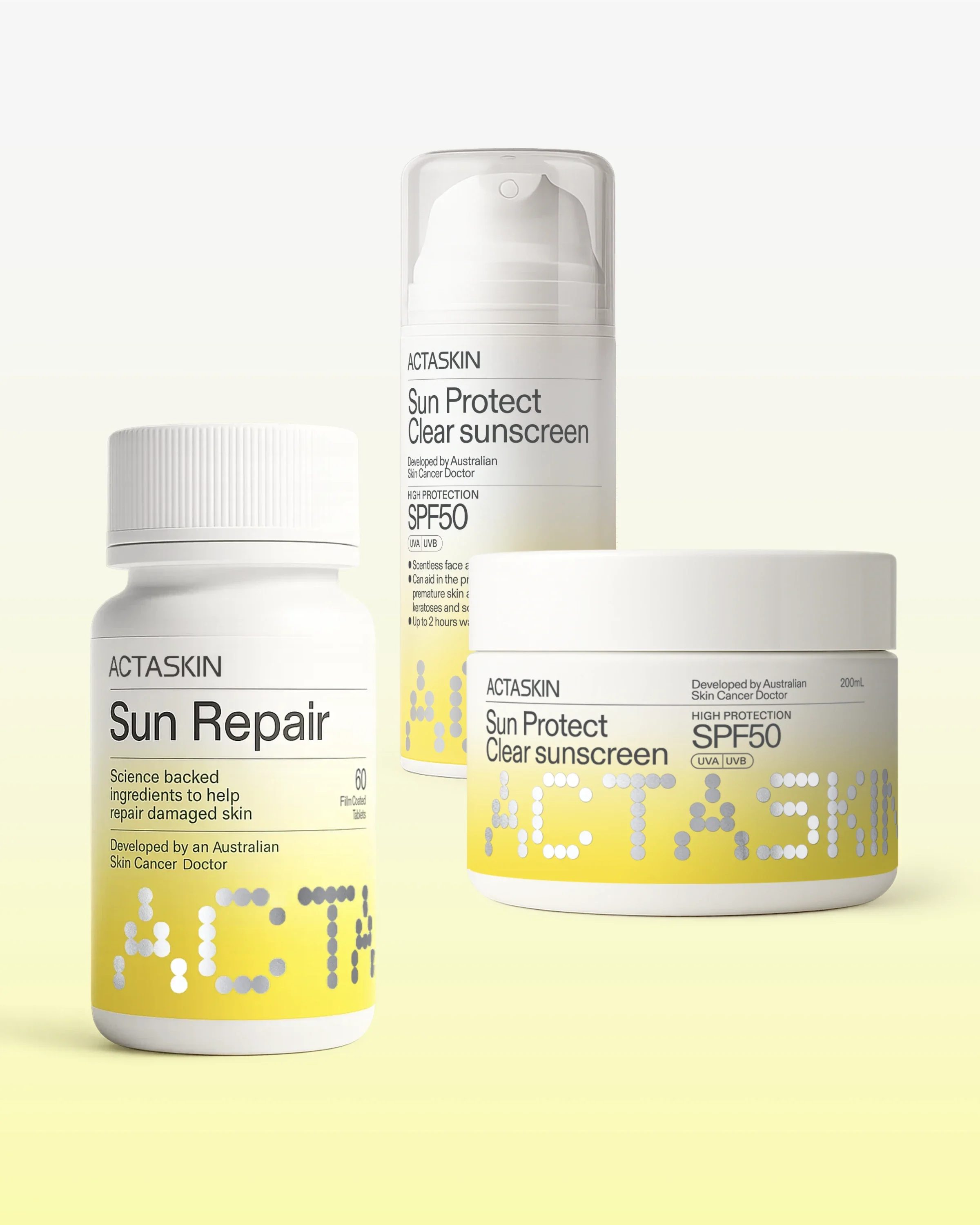Let’s talk facts. I ran a study on sunscreen habits with 110 Australians, and here’s something that stopped me in my tracks:
1 in 4 Australians aged 30-45 don’t think daily sunscreen is important for preventing skin cancer.
That’s a problem.
Skin cancer isn’t random. It’s cumulative. Over 90% of skin cancers are caused by sun exposure, and UV damage stacks up over your lifetime. You won’t always see the effects right away, but by the time you do, it’s often too late. The good news? It’s never too late to start protecting your skin.
Three Myths That Need to Die
“I work indoors, so I’m fine.” Nope. UVA rays penetrate glass, meaning your office windows and daily drives are still exposing your skin to damage. Reflected UV from roads, buildings, and even water can also hit you when you least expect it.
“If it’s overcast, I don’t need sunscreen.” Wrong. UV radiation is invisible—it matter if the sun is out or hiding behind clouds. Temperature is just as misleading. Even on cooler days, UV levels can be dangerously high. Always check your local UV levels.
“I only wear sunscreen when I know I will be out for long periods of time.” UV damage is cumulative, every exposure adds up.
A groundbreaking 24-year study out of Queensland found that people who applied sunscreen daily to their face and arms cut their melanoma risk in half—yes, half—compared to those who only used it when they “felt” they needed it. Even better? The melanomas that did develop in daily sunscreen users were far less invasive.
Consistency Matters
A groundbreaking 24-year study out of Queensland changed everything we thought we knew about sunscreen. The research found that people who used sunscreen daily on their face and arms reduced their risk of melanoma by 50% compared to those who only applied sunscreen when they felt it was necessary. Even more impressive, the melanomas that did develop in those daily sunscreen users were far less invasive, leading to better outcomes.
This study, the Nambour Skin Cancer Prevention Trial, is one of the most significant in skin cancer research. Involving 1,621 participants from Nambour, Queensland, the trial followed two groups: one that applied sunscreen every day, and one that applied sunscreen only when they thought it was necessary. The results were clear:
- 50% Reduced Risk of Melanoma: After 15 years, those who used sunscreen every day had half the incidence of melanoma compared to the discretionary group.
- Less Invasive Melanomas: Among those who did develop melanoma, the ones who used sunscreen daily had less invasive cancers, meaning a much better chance of recovery.
This research is the reason we now know that daily sunscreen use is one of the best tools in preventing melanoma. It’s also a major reason why public health guidelines now emphasise the importance of consistent, daily sun protection.



